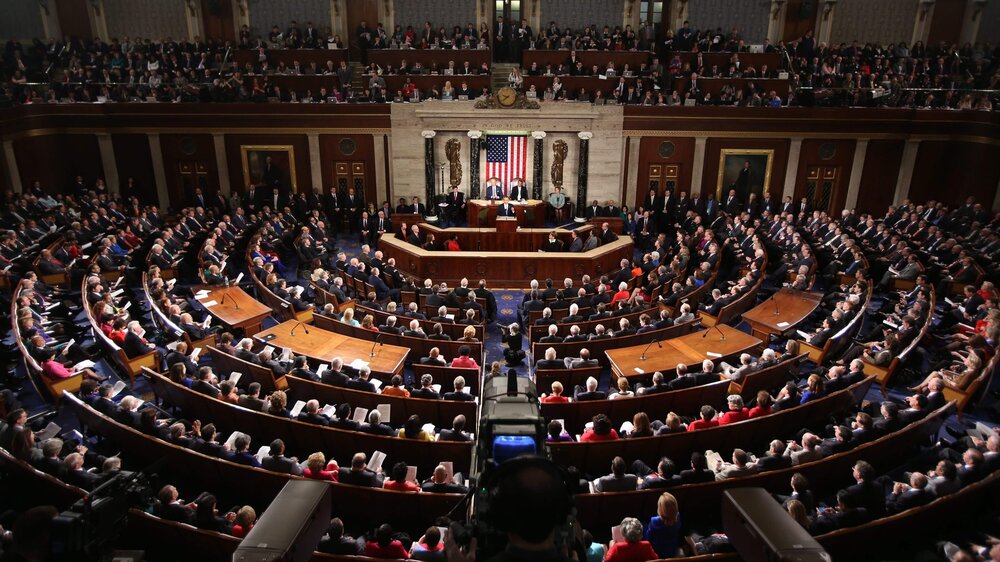Congress biggest impediment to restoring JCPOA: American think tank

TEHRAN- The biggest hurdle to the U.S. returning to compliance with the Iran nuclear deal – JCPOA - is Congress since lawmakers, many of whom are vehement opponents of the agreement, have a say in the matter, Jonathan Lord, a senior fellow at the Center for a New American Security (CNAS), says.
The Iran Nuclear Agreement Review Act (INARA), which granted Congress control over the agreement, was approved by Congress and signed into law by the president in 2015 when the Barack Obama administration was negotiating the initial JCPOA.
Writing in The Hill, Lords says, “INARA basically granted Congress veto authority over the JCPOA, or any new or altered deal with Iran. What remains legally uncertain is, what happens if the United States and Iran both return to compliance with the original JCPOA — would that constitute a ‘new deal,’ requiring submission to Congress? Legally, it’s not clear.”
It's difficult to picture the Joe Biden administration avoiding legislative supervision on a topic of such profound political consequence, says Lord, director of the Middle East Security program at the CNAS.
“In May, Biden’s lead negotiator, Rob Malley, testified to the Senate Foreign Relations Committee that any deal the administration reached would be submitted to Congress under INARA, initiating the 30-day review period and potentially enabling Congress to pass a JRD (Joint Resolution of Disapproval) and kill the deal,” underscored Lord in his article titled “The greatest obstacle to returning to the Iran deal isn’t Iran — it’s Congress”.
Since April of last year, negotiations have been underway in Vienna, the capital of Austria, to resurrect the JCPOA. After Biden was elected president of the United States, he pledged to reinstate the agreement and revoke the maximum pressure approach used by his predecessor Donald Trump against Tehran.
The extent of the sanctions that will be lifted and the requirement for the U.S. to provide guarantees that it won't exit the deal again are only two of the unresolved points that have prevented an agreement from being reached thus far in the negotiations.
Republicans in Congress have been pressuring Biden not to reinstate the JCPOA or relax any of the restrictions enacted as part of the so-called maximum pressure campaign.
“Beyond the details of the deal being negotiated, it’s hard to imagine what lasting benefit there is for Iran in agreeing to return to a deal that has become so politicized in U.S. politics that any hypothetical Republican successor to Biden — who is currently polling around 40 percent approval — is likely to tear it up on day one of his or her presidency,” Lord added.
“But,” he said, “if we suspend our disbelief that the negotiating teams can succeed in overcoming doubts and disagreements, what legally must follow in Washington further complicates a return to the deal: Congress gets a say.”
He said, “Providing that a deal is reached, and is submitted to Congress for review, would it survive? The short answer — and an evergreen one when dealing with the legislative branch — is probably, but it’s going to be painful,” he said.
Lord said Trump's maximum pressure campaign, which was put in place after he withdrew from the JCPOA in 2018, failed to persuade Iran to make more concessions.
The COVID-19 outbreak was a force multiplier that pushed Iran's economy into a fever-pitch disaster, and it was even helped along by accident, he added.
In his article, Lord wrote despite everything, Tehran still moving forward with its drone, ballistic missile, and nuclear programs.
"We could have lost the most valuable resource we have: time, by leaving the JCPOA. And it's difficult to understand how we're better off now that we're running out of time and alternatives. Let Congress think about it,” Lord said in conclusion.
